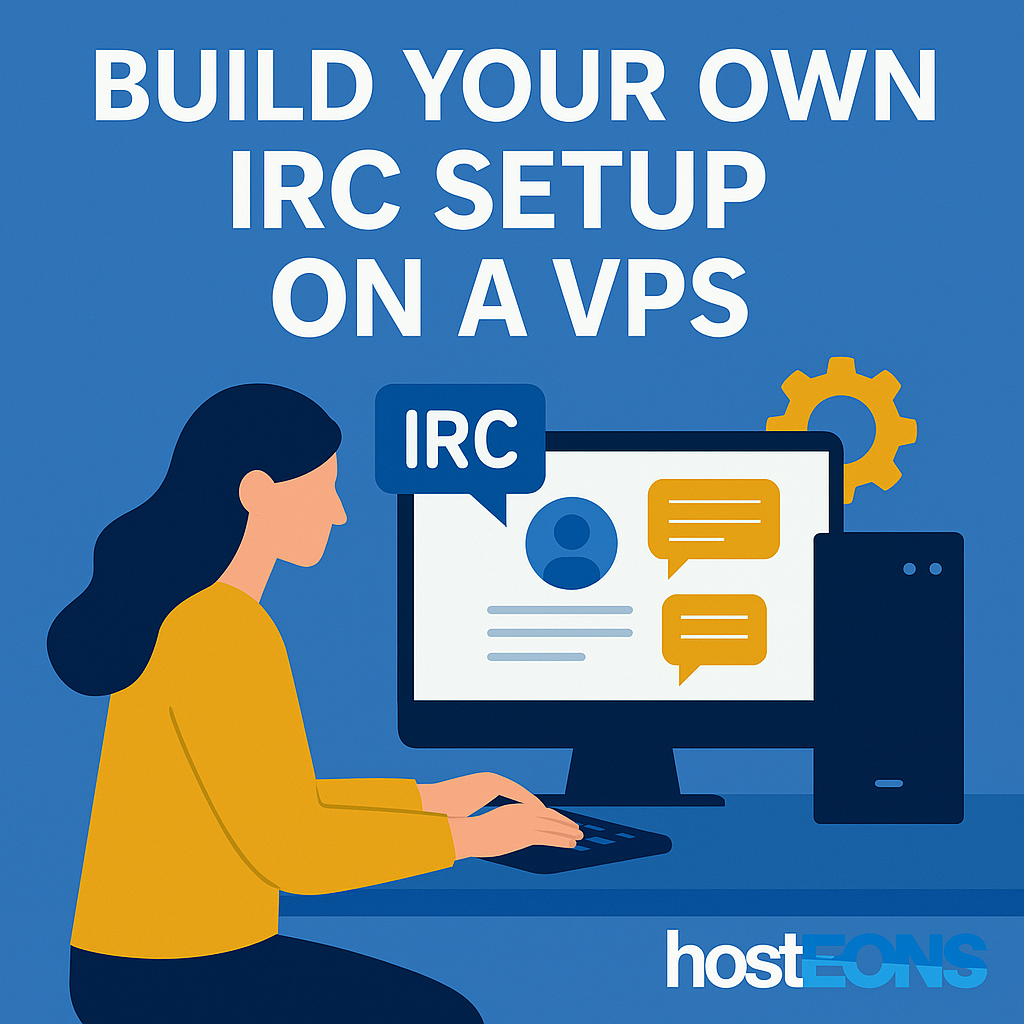
If you’re an IRC enthusiast looking to replicate the classic Unix shell account experience, a VPS from Hosteons gives you everything you need — and more.
With support for ZNC bouncers, IRC bots, custom vHosts using IPv6, and Identd (for network compliance), you can build a full-featured, personalized IRC setup in minutes.
🚀 Why Use Hosteons for IRC?
- 🧠 Full root access on all VPS plans
- 🌍 Global server locations with great latency
- 🧾 rDNS support for both IPv4 and IPv6
- 🧮 Up to 20 IPv6 IPs per VPS — perfect for vHosts
- 💳 Crypto and global/local payment options supported
- ⚡ Instant setup via https://hosteons.com
🛠️ Step 1: Choose Your OS & Access Your VPS
We recommend Debian or Ubuntu for IRC-related software.
After provisioning, connect to your VPS:
ssh root@your_vps_ipUpdate packages:
apt update && apt upgrade -y👤 Step 2: Create a Non-root IRC User
For security and shell access:
adduser ircuser
usermod -aG sudo ircuserSwitch to your new user:
su - ircuser🔄 Step 3: Install and Configure ZNC (IRC Bouncer)
ZNC keeps you connected to IRC even when you’re offline.
Install ZNC:
sudo apt install znc -yCreate configuration:
znc --makeconfFollow prompts to:
- Set admin user/password
- Choose a port
- (Optional) Bind to a specific IPv6 for vHost use
Start ZNC:
zncAccess via web panel:
http://your_vps_ip:portEdit config later at:
~/.znc/configs/znc.conf🤖 Step 4: Install an IRC Bot (Optional)
🐍 Option 1: Sopel (Python)
pip install sopel
sopel configure
sopel start🥚 Option 2: Eggdrop
sudo apt install eggdrop -y
eggdrop -m eggdrop.conf🧭 Step 5: Assign IPv6 for vHost (Up to 20 Per VPS!)
- List your available IPv6 IPs:
ip -6 addr- Bind ZNC to an IPv6:
Edit ~/.znc/configs/znc.conf:
<Listener listener0>
Port = 6697
IPv6 = true
BindHost = your_ipv6_here
</Listener>- Restart ZNC:
znc --reload🔁 Step 6: Set Reverse DNS (rDNS) for IPv4 and IPv6
- Go to https://vps.hosteons.com
- Select your VPS → Network tab
- Set rDNS records for both your IPv4 and IPv6 addresses
- This helps your vHost appear clean and improves IRC acceptance
🧾 Step 7: Install and Configure Identd (Required by Some IRC Networks)
IRC networks often require an Identd response on port 113.
🔧 Install oidentd:
sudo apt install oidentd -yEdit config:
sudo nano /etc/oidentd.confExample:
global {
default {
deny spoof
deny spoof_all
allow random
}
}
user "ircuser" {
default {
force "ircuser"
}
}Enable and start:
sudo systemctl enable oidentd
sudo systemctl start oidentd🔓 Open Port 113 in Firewall (if applicable)
sudo ufw allow 113/tcpOr:
sudo iptables -A INPUT -p tcp --dport 113 -j ACCEPT🧪 Step 8: Test Your Setup
- Connect to IRC from your local client using your VPS
- Ensure your vHost and ident show up correctly
- Use services like mxtoolbox.com to verify RDNS
🧠 Extra Tips
- You can install screen or tmux to keep sessions running in the background.
- Use crontab -e to auto-start ZNC or bots on boot.
- Set up fail2ban or a firewall like ufw to secure your VPS.
- Always use strong passwords and keep software updated.
✅ Ready to Get Started?
Choose a VPS plan and start building your IRC shell-like environment today:
Need help? Contact us via https://my.hosteons.com